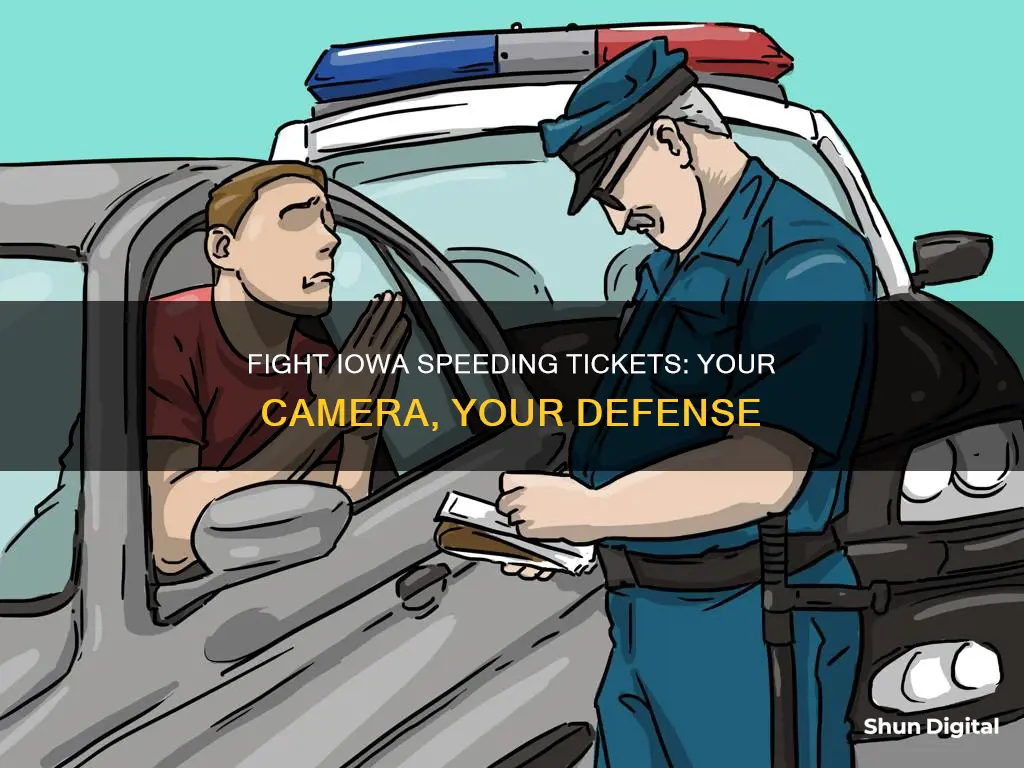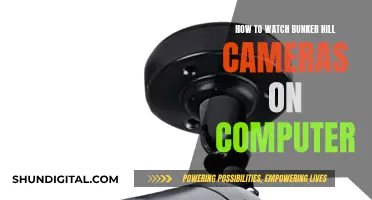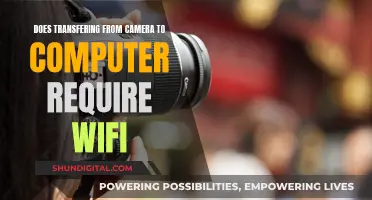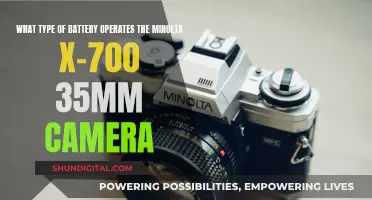
If you've received a speeding ticket from a camera in Iowa, you may be wondering how to fight it. Camera speeding tickets are issued based on photographic evidence captured by automated cameras, and they can be contested through the legal system. Here are some steps you can take to beat a camera speeding ticket in Iowa:
1. Review the ticket: Understand the specific details of the alleged violation, including the date, time, location, and speed. Look for any discrepancies or errors that could help your case.
2. Gather evidence: Collect any evidence that may support your defence, such as witness statements, photographs, or documentation of equipment malfunctions.
3. Consult an attorney: Seek legal advice from a traffic law specialist to understand your options and develop a defence strategy.
4. Plead not guilty: Respond to the citation by mail, online, or in person by pleading not guilty before the deadline, typically within 30 days.
5. Request production of documents: Obtain copies of the photos, as well as maintenance records for the camera and speed monitoring system, to establish their accuracy and reliability.
6. Research applicable law: Look for cases and appellate court decisions in your area regarding the legality of traffic camera tickets and any recognised defences.
7. Attend the hearing: Arrive at the courthouse with your evidence, organised and professionally dressed. Treat courthouse staff with respect and present your defence calmly.
8. Challenge the admissibility of the photograph: In some jurisdictions, camera photos may be considered hearsay and require additional witness testimony to be admitted as evidence.
9. Dispute the authenticity of the photograph: Object to the use of the photographs if no one from the company that maintains the camera is present to testify about its foundation and reliability.
10. Attack the lack of evidence: Argue that the prosecution cannot prove it was you driving the car, especially if there is no clearly identifiable photo of you in the driver's seat.
What You'll Learn

Question the accuracy of the camera
If you've received a camera speeding ticket in Iowa, you may want to fight it by questioning the accuracy of the camera. Here are some things to consider:
Inaccurate Speed Measurement:
The accuracy of camera speed measurements can be questionable. Factors such as calibration errors or technical malfunctions can affect the camera's readings. Challenging the reliability of the camera can cast doubt on the validity of the ticket.
Request Calibration Records:
Calibration records are crucial in your defense. These records show when the camera was last calibrated and if any discrepancies or errors occurred during the process. If the camera was not calibrated within the required timeframe or if there are issues with the calibration, it weakens the prosecution's case.
Technical Malfunctions:
Cameras can experience technical issues, resulting in inaccurate readings or false positives. If you suspect equipment malfunction, gather evidence to support your claim, such as maintenance logs or documentation of similar incidents.
Distance and Time Calculation:
To verify the accuracy of your speeding ticket, you need to know the distance your car travelled within the given timeframe. If this information is not provided, you can question the calculation of your speed. Poor photo quality, lighting, and angle can also make it difficult to determine the distance travelled.
Margin of Error:
Ask about the margin of error for the device. If the officer is unsure or unable to provide this information, it can be used in your defense.
Certification and Compliance:
Check if the camera and the officer operating it are certified and compliant with the requirements. If not, you may be able to challenge the validity of the ticket. Also, some jurisdictions in Iowa have specific requirements for the operation and maintenance of traffic cameras. If these requirements are not met, you may have grounds to dispute the ticket.
Remember, fighting a camera speeding ticket in Iowa can be complex, and it's advisable to consult with an attorney who specializes in traffic law to guide you through the process and improve your chances of success.
Mastering Camera Raw: Adjusting Clarity for Stunning Photos
You may want to see also

Argue lack of personal identification
Camera speeding tickets in Iowa are considered civil infractions, and the registered owner of the vehicle is typically held responsible for the violation. However, if you were not the driver at the time of the incident, you may have grounds to contest the ticket on the basis of lack of personal identification.
To successfully argue lack of personal identification, you must prove that you were not the one driving the vehicle when the speeding violation occurred. This can be done by providing evidence that supports your claim. For example, you can present an alibi or witness statements that attest to your whereabouts at the time of the incident. Alternatively, you may be able to provide video or photographic evidence that shows someone else was driving your vehicle.
It is important to note that simply claiming that you were not the driver may not be sufficient. The prosecution must prove that you were the driver, and if there is any doubt about your identity, you may have a valid defense. However, providing concrete evidence that someone else was driving can significantly strengthen your case.
In addition to gathering evidence, it is highly recommended that you consult with an attorney who specializes in traffic law. They can guide you through the legal process, help you build a strong defense strategy, and advise you on the specific requirements and procedures in Iowa.
Remember, each case is unique, and the success of your defense depends on various factors. By taking the time to understand the legal process, gathering supporting evidence, and seeking legal advice, you can increase your chances of successfully contesting the camera speeding ticket in Iowa on the basis of lack of personal identification.
Charging Camera Batteries: USB Option for Photographers
You may want to see also

Argue that it violates your constitutional rights
If you have received a camera speeding ticket in Iowa, you may want to contest it on the grounds that it violates your constitutional rights. Here are some reasons why challenging a camera speeding ticket on these grounds may be valid:
Right to Confrontation and Due Process:
Some individuals argue that automated enforcement systems, such as traffic cameras, infringe upon their right to confront their accuser and their right to due process. In the case of Marla Leaf, who received a speeding ticket in Iowa, she argued that her constitutional rights were violated because the city of Cedar Rapids delegated police powers to a private company that maintained the speed cameras. Leaf's attorney, James Larew, claimed that the use of such cameras was "unduly intrusive, unfair, and simply amounted to sophisticated speed traps designed to raise funds for cash-strapped municipalities."
Accuracy of the Camera:
You can question the accuracy and reliability of the camera that captured your alleged speeding violation. Cameras can sometimes produce incorrect readings due to technical malfunctions, calibration errors, or other factors affecting the accuracy of their readings. Challenging the reliability of the camera can cast doubt on the validity of the ticket.
Lack of Personal Identification:
If the ticket does not clearly identify the driver, you may have grounds to contest it. While the registered owner of the vehicle is typically held responsible for the violation in Iowa, you may not have been the one driving at the time, which could be a valid defense.
Lack of Notice:
Iowa law requires that drivers be notified of the use of traffic cameras in certain areas. If there was inadequate signage or a lack of proper notification, you can argue that you were not aware of the camera and its enforcement, challenging the validity of the ticket.
Potential Violation of Equal Protection:
In the case of Marla Leaf, her attorney, James Larew, argued that the camera system in Cedar Rapids did not issue tickets to semitrailers and government vehicles, calling this discrepancy arbitrary and a violation of equal protection.
Right to Travel:
In the 2019 Iowa Supreme Court decision, the justices ruled that speed cameras do not infringe on someone's fundamental right to travel. However, you may argue that the specific circumstances of your case restrict your right to travel without undue interference.
When considering challenging a camera speeding ticket in Iowa on the grounds of constitutional rights violations, it is important to consult with an attorney who specializes in traffic law to understand the potential outcomes and build a strong defense.
Troubleshooting Camera Raw Command Issues
You may want to see also

Challenge the authenticity of the photograph
If you have received a speeding ticket in Iowa, you may be wondering how to fight it. Camera speeding tickets are issued based on photographic evidence captured by automated cameras, and they can be contested through the legal system.
When you receive a camera speeding ticket, it is important to carefully review the citation for any inaccuracies. Check the date, time, and location of the alleged violation to ensure that it matches your records. Mistakes or inaccuracies on the ticket may provide grounds for a successful defense.
In the case of a speeding ticket, you can challenge the authenticity of the photograph by questioning the accuracy and reliability of the camera. Cameras can sometimes produce incorrect readings due to technical malfunctions or calibration errors. You can request calibration records for the camera to support your claim. These records show when the camera was last calibrated and if it was done correctly. If the camera was not calibrated within the required timeframe or if there are discrepancies in the calibration process, it can help your case.
Additionally, you can challenge the chain of custody of the camera footage. This means that you can argue that the footage may have been tampered with or altered. If there are doubts about the integrity of the evidence, it can be used to challenge the ticket.
Another factor to consider is the lack of notice. Iowa law requires that drivers be notified of the use of traffic cameras in certain areas. If you were not properly notified or if the signage was unclear or inadequate, you can argue that you were not aware of the camera and, therefore, challenge the ticket.
It is also worth noting that the burden of proof lies with the government in camera speeding ticket cases. This means that they must provide sufficient evidence to prove that you were the driver of the vehicle at the time of the violation. If there is any doubt about your identity, you may have a valid defense.
While challenging the authenticity of a photograph from a speeding ticket can be a complex process, it is important to carefully review the evidence and build a strong defense. Consulting with an attorney who specializes in traffic law can provide valuable guidance and increase your chances of success.
Pentax Cameras: Still in the Market?
You may want to see also

Argue that the prosecution cannot prove you were driving
Camera speeding tickets in Iowa are typically issued when a vehicle is recorded by a camera exceeding the posted speed limit. The camera captures the license plate of the vehicle, and a citation is then mailed to the registered owner. These tickets are considered civil infractions rather than criminal offenses, and they do not result in points on your driving record. However, they can still result in fines ranging from $65 to $75.
When contesting a camera speeding ticket, it is important to understand that the burden of proof lies with the government. This means that the prosecution must provide sufficient evidence to prove that you were the driver of the vehicle at the time of the violation. Here are some strategies to argue that the prosecution cannot prove you were driving:
- Review the ticket for inaccuracies: Carefully examine the citation for any mistakes or discrepancies in the date, time, location, or alleged speed. Any errors on the ticket may weaken the prosecution's case and provide grounds for a successful defense.
- Challenge the accuracy of the camera: Question the reliability of the camera by arguing that it may have produced incorrect readings due to technical malfunctions or calibration errors. Request calibration records to determine if the camera was properly calibrated and maintained.
- Raise doubts about driver identification: If the ticket does not clearly identify the driver, you may argue that you were not the one driving at the time of the violation. Present evidence, such as witness statements or alibis, to support your claim.
- Challenge the chain of custody: The prosecution must establish a proper chain of custody for the camera footage to prove that it has not been tampered with or altered. If there are doubts about the integrity of the evidence, it can be used to challenge the ticket.
- Lack of notice: Iowa law requires that drivers be notified of the use of traffic cameras. If there was inadequate signage or a lack of proper notification, you can argue that you were unaware of the camera and its enforcement.
It is important to note that fighting a camera speeding ticket can be complex, and the outcome is not guaranteed. Consulting with an experienced traffic attorney can help you build a strong defense and navigate the legal process effectively.
Baby Camera Cloud Storage: Charging for Your Dog's Memories?
You may want to see also
Frequently asked questions
Camera speeding tickets in Iowa are considered civil infractions, not criminal offenses, and there are several reasons why you may want to contest one. For example, you can call into question the accuracy of the camera's speed measurements, or argue that the equipment malfunctioned or that there was a lack of proper signage.
To contest a speeding ticket in Iowa, you should first carefully review the ticket and gather any evidence that may support your case, such as witness statements or documentation of equipment malfunctions. Then, consult an attorney who can help you develop a defence strategy.
In Council Bluffs, 83% of appealed automated traffic enforcement citations resulted in dismissals. The success rate on appeals in three other cities with enforcement cameras ranged from 20% to 50%. However, only a small fraction of motorists bother appealing their citations.
If you do not pay a speeding ticket in Iowa, the city can place a civil lien against your license plates, so you will have to pay the fine when you try to renew your registration.







